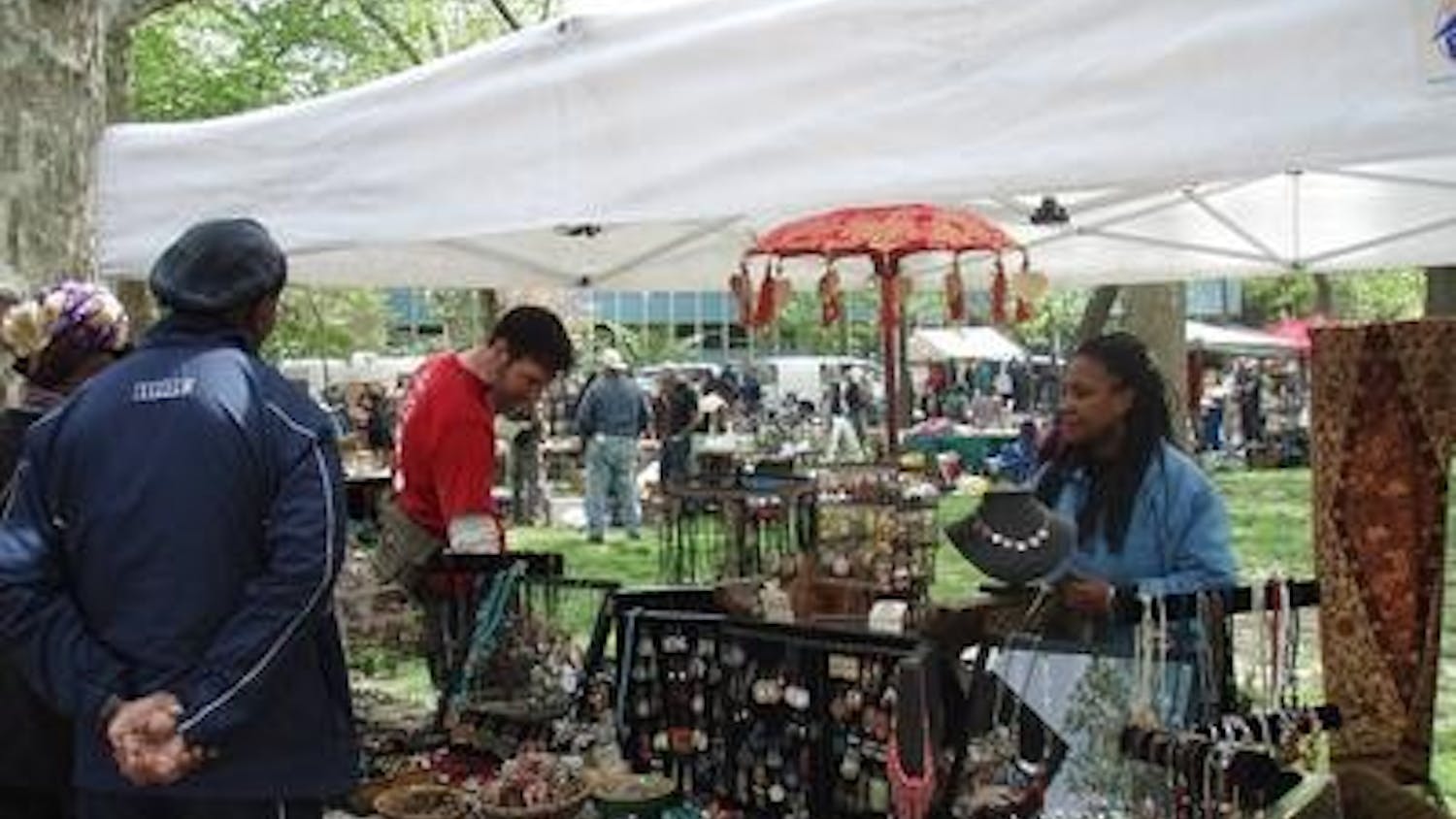Big Love is a chaotic depiction of gender domination and marital troubles. Fifty brides, represented by three actresses, infiltrate the Dali-inspired set in an attempt to create a larger than life performance. Having just fled their pre-arranged marriages, these Greek goddesses sail to Italy to seek refuge in the home of a random middle-aged man, Piero, and his elderly mother. This is not your typical cold feet hesitation. The prospect of dealing with the "biological accident" -- more commonly referred to as men -- sends these three sisters on a panic-stricken, male-bashing rendezvous.
The interactions between the three sisters allow conflicts in the plot to arise. Lydia is the moderate peacemaker of her extreme sisters. Olympia has her head in the clouds, and often her simplistic male expectations are shot down by her psycho-bitch sister Thyona. While Olympia dreams of an ideal mate to pleasure her in every sense of the word, Thyona shoots her down with oh-so deep didactic revelations: "Men should be flushed down the toilet," "Men are not a new sensation," "Men can go fuck themselves." Although their preachy cliches culminate in a powerful chant of "You Don't Own Me," the grooms come to recapture their women and consummate their marriage -- literally. With comedy, music, gymnastic and sex appeal, the subsequent scenes attempt to define typical gender frustrations, while proposing ideal roles for couples to embody. Many of the issues surfaced are too serious for the jolly merriment on the stage, which makes the audience wonder if the script itself actually understands what is going on. This energetic, sensual cabaret takes a wistful turn -- the fears that trap, isolate and limit contemporary society emerge as the time for the ceremony quickly approaches. With erotic choreography, shocking stunts, and even some nudity, Big Love is a thrilling adventure into the absurdity of a confused lover. At the same time, it points out obvious dilemmas, such as the lack of communication between men and women, while failing to offer any solutions. Perhaps the only sweetheart with any direction is Giuliano, Piero's homosexual nephew, whose love ballad, played on a mini piano, puts the rest of the disillusioned cast to shame. Big Love is no show for nervous fianc‚es. It may be a better choice for more established couples who long to relive the uncomfortable initial days of a budding romance. The performers bring to life the modern struggles of dysfunctional families, bad marriages, and personal hysterias that are difficult to escape. Just like a typical drunken stupor, Big Love is vivid, shocking and worthy of fits of laughter.






